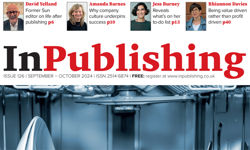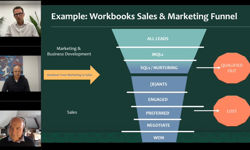
Last month, Private Eye revealed they were selling 230,099 copies a fortnight. It’s their highest sales figure in 30 years. This raised eyebrows.
How could it be? Aren’t we in the final days of paper? And Private Eye is a firmly old-school print product. There is a website, but that’s really to push subs. Yet Private Eye was not alone in being a print-focused product posting sales increase. The Week did too. As did the magazine I edit, The Big Issue. We’ve had two years’ consecutive growth. Yet, like Private Eye, our website has been primarily a device for pushing paper sales (82,294 a week, since you ask…).
Accidental doorways
This is heartening for a number of reasons. Primarily, because it bucks received notions about the unstoppable decline of print. Sectors of the industry are suffering, but evidently others are surging. The exact reason for this is tricky to divine. But it’s clear on one thing. When print works, NOTHING beats it. It remains an incredibly mobile, practical, tactile solution for communicating information. And the wonderful by-product of this is the accidental doorways that print opens, the curios it reveals that you just weren’t looking for, in ways that increasingly sophisticated digital offerings - which nudge and pull you to things algorithms have worked out you like, moving ever further from happy accidents - just can’t.
I was asked to write a piece on an app I like for InPublishing. I read some interesting features by some interesting people to help me along. But I felt bad. I like InPublishing. It’s a good, always interesting industry read. But I wasn’t up to it. I feared I was about to let InPublishing down. Because I just don’t have enough apps I like. I don’t download apps, not really. I’m aware of them, but I don’t love them. I’m still with print. Hugely, unstoppably.
In the morning, I go to Twitter (following people I disagree with as much as I agree with) to kickstart the day. But after that, I’m a print believer.
There is craft to the Metro frontpages, working out how to make old news that most already know, feel fresh in the morning light. There is skill in how they mine the parts of stories others might ignore. And the letters, the strange ongoing on-page conversations, provide character. They’re funny. This is such a clever way to make readers feel part of something that is ultimately transient and hard to feel part of.
And then I go The Times. They’re on the up. While other dailies are feeling it, The Times reported a double-digit ABC lift last year. Others have been cutting, they’ve invested money - some big star sports reporters, some big-name columnists.
I like the way they’re writing news, I like the TMS diary (insidery, but vinegary and waspish). But I head first to the obituaries. That’s where the stories really lift. Lives lived, adventures had, breakthroughs made - frequently names unknown to the great number of us. Written by expert voices or old companions, there is depth and a heart to them that is never fake. And their secondary column, in which readers comment on stories told in the obituaries adds another run.
These two are not the only dailies that offer something. The i is really great. A simple digest at the front of the book, some clever thinking to get the right voices responding to the right stories, and an identity that is increasingly sure-footed and fearless in really taking on government inequities. There is a website - but why bother when the paper navigates so well.
And I don’t tire of the smarts in The Sun’s headlines. And their TV reviewer Ally Ross is one of the best in Britain.
Full of surprises
But it’s the frequent joy of the unexpected that delivers most.
Growing up in provincial Northern Ireland in the 1980s, I became increasingly obsessed with music. And as nobody of note ever came to Northern Ireland, the music press was the window to the world. First Smash Hits and then the NME. It wasn’t just the bands and the writing in the NME that jumped off the page, it was the gig ads. Places like the Glasgow Barrowlands or London Astoria or Northampton Roadmender took on mythical, mystical proportions. I dreamed of being in such sweaty pleasure palaces.
Something of that remains. I now subscribe to Church Times. This is not a damascene change from bacchanalian NME days (my obsession meant that I resolved to work for the NME, and I did, remaining for a good number of happy years…) but rather because the obsession has moved to ecclesiastical architecture. Not being Anglican, I thought Church Times would have a load of churches in it. It doesn’t, really. But amongst the unforeseen joys is the ad section at the back. The job ads feel sometimes like I’m discovering a dusty map of old place names that may be forgotten if not said out loud, certainly to my non-English tongue. This section is hugely readable every week. And I find it amusing at just how many offer a car as an incentive.
Their Word From Wormingford column is always great to read too, like Lake Wobegone Days if it were reimagined by Robert Macfarlane.
That’s not all. Frequently, there will be a story inside that hasn’t been covered by the mainstream press, particularly around social justice. More than once, it has sparked an idea that has led to more for The Big Issue. Odd corners lead to great views.
Deep engagement
I love the sheer adoration of words and hard ideas in London Review of Books. The pieces demand time and attention, time and attention that is hard to give digitally when other elements bang in. But it pays off. And their letters page too is a must-read every fortnight. Though niche and frequently esoteric, I just hope that some of it - or some of the forensic, simple insight of David Runciman – makes me smarter.
I like having Radio Times around the house. Listings on the page are easier to consume than on screen. And there is something to be said for trusting an authoritative voice to provide guidance. It’s a masterful lesson every single week in how to be a massive selling populist title that makes you think, and it knows how to draw news lines from places you don’t think you’d find them. Ben Preston is a very fine editor and will be missed when he moves to the Sunday Times.
To really understand anything, you’ve got to follow the money. And frequently, for me, it’s in Bloomberg Businessweek. They have a radical design that works every page incredibly hard, but just enough. They start with covers that grab and draw readers through with a wit that makes you want to keep reading. The stories they reveal in the business and tech world will become the talkers we’ll all get to in the following weeks.
And then there is Viz. Foul mouthed, frequently offensive and very funny. There is something special to it. Strips like Drunken Bakers and The Male Online frequently feel like they offer the best, most telling comment of the times we’re in. Maybe I’m overstating. Maybe it’s just hard to beat a good fart gag. And things much more puerile than that. Reading it on a packed train is an adventure.
Simply better on paper
The are other titles that just feel better on the page, like Empire and increasingly Q – which has some really great writing in it just now. And a great use of layout. When the design is cared for, it demands you savour the DPS.
Let’s not forget local papers. They are struggling hugely just now, which is a crying shame. There remains no better way to take the temperature of somewhere you don’t know than picking up the local newspaper.
I don’t want to sound like a Luddite standing with an axe over a smartphone ready to take us back to tablets of stone. Digital is important. We’re about to launch a fantastic new Big Issue website. It’ll help grow our reach and amplify our message. Digital remains a smart response for access sometimes. I might want to take a subscription to the New York Times, but that’s a hell of a journey for the paperboy. So, in that case I can get what I need online.
But paper is vital. For publishers, for the majority of publishers, it’s where the money still remains. For The Big Issue, it’s why we exist - to give the poorest in society a product they can sell that will allow them to make a living and move up.
Paper allows adventure. It allows for happy accident. It allows for trails in the wood that can lead to unknown joys. Every editor hopes they get to that with every edition.
As readers, we can see if they hit the mark by, now and again, putting down the screens, opening the paper covers, diving and allowing ourselves to become vulnerable to delight.










